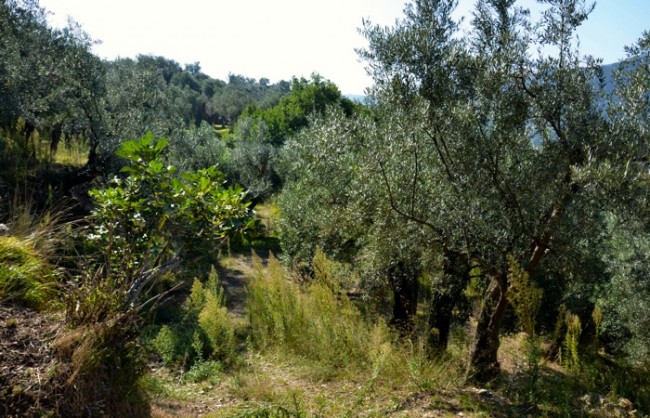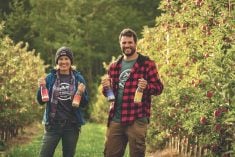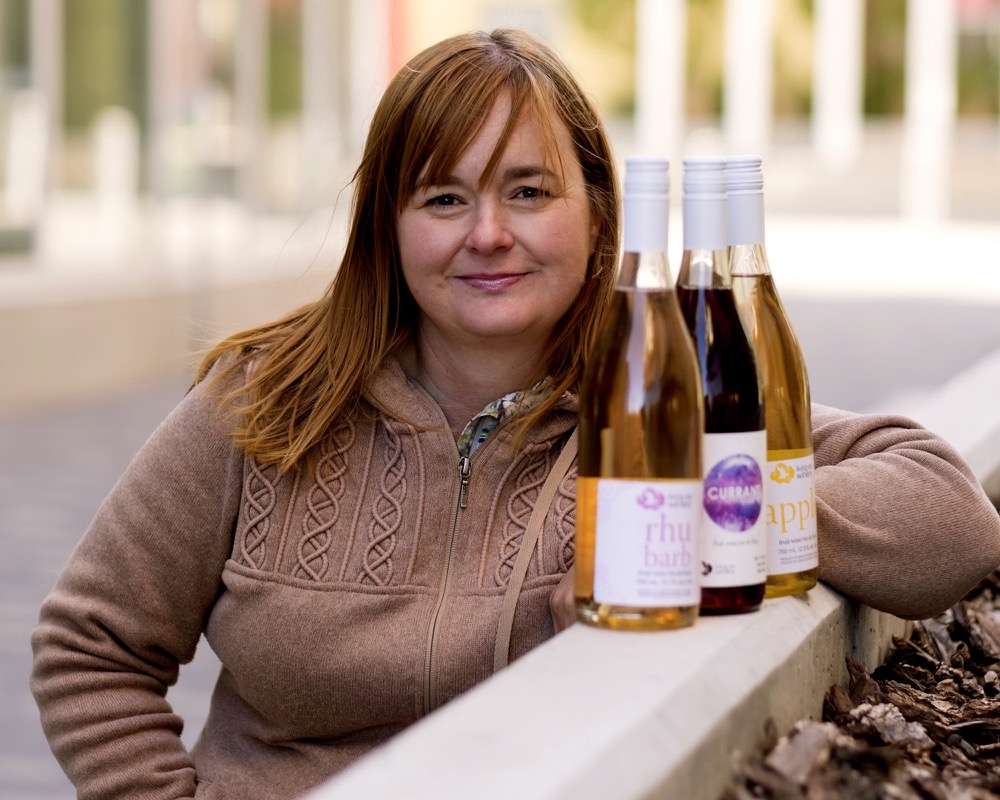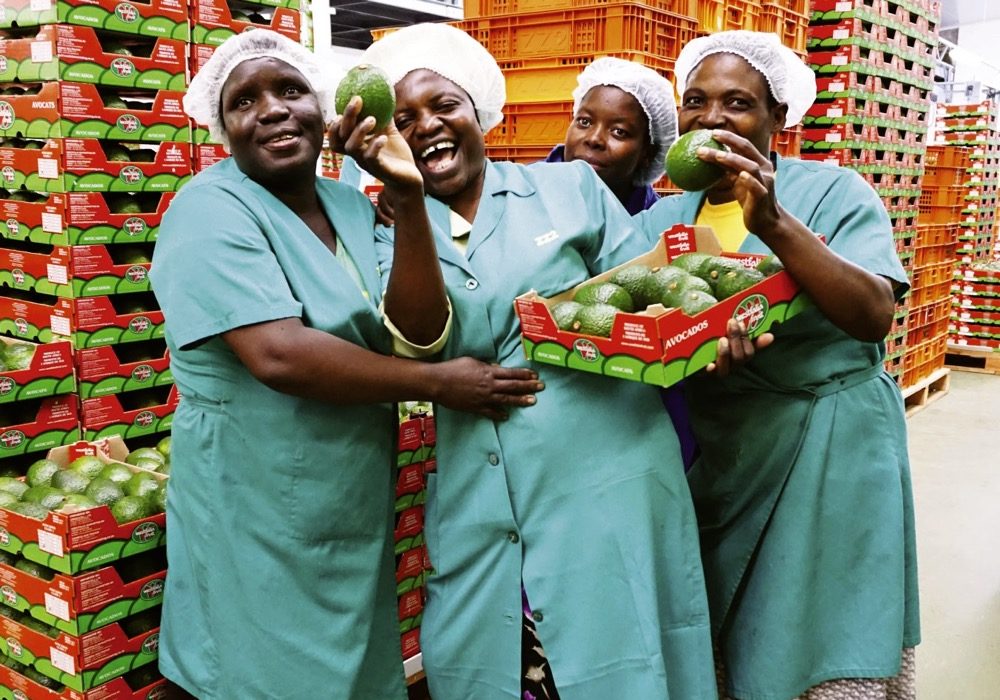The road to the farm called I Cianelli runs out of the seaside resort of Andora, Italy, through the basil fields behind it. Narrow at first, the road curves up the stony hillside to a ledge overlooking the Mediterranean Sea, for it is here, from an impressive limestone house surrounded by native brush and olive groves, that Stefano Trevia and Rosanna Baggetta operate their small farm and agritourism business.
At just under nine acres, I Cianelli is among the 73 per cent of Italy’s farms that are under 12.5 acres. Only five per cent of Italian farms are over 75 acres, although together they account for over half of the country’s nearly 20 million arable acres. Most of those larger farms, however, are in the Po Plain in the north, producing rice, wheat, corn and sugar beets.
Read Also
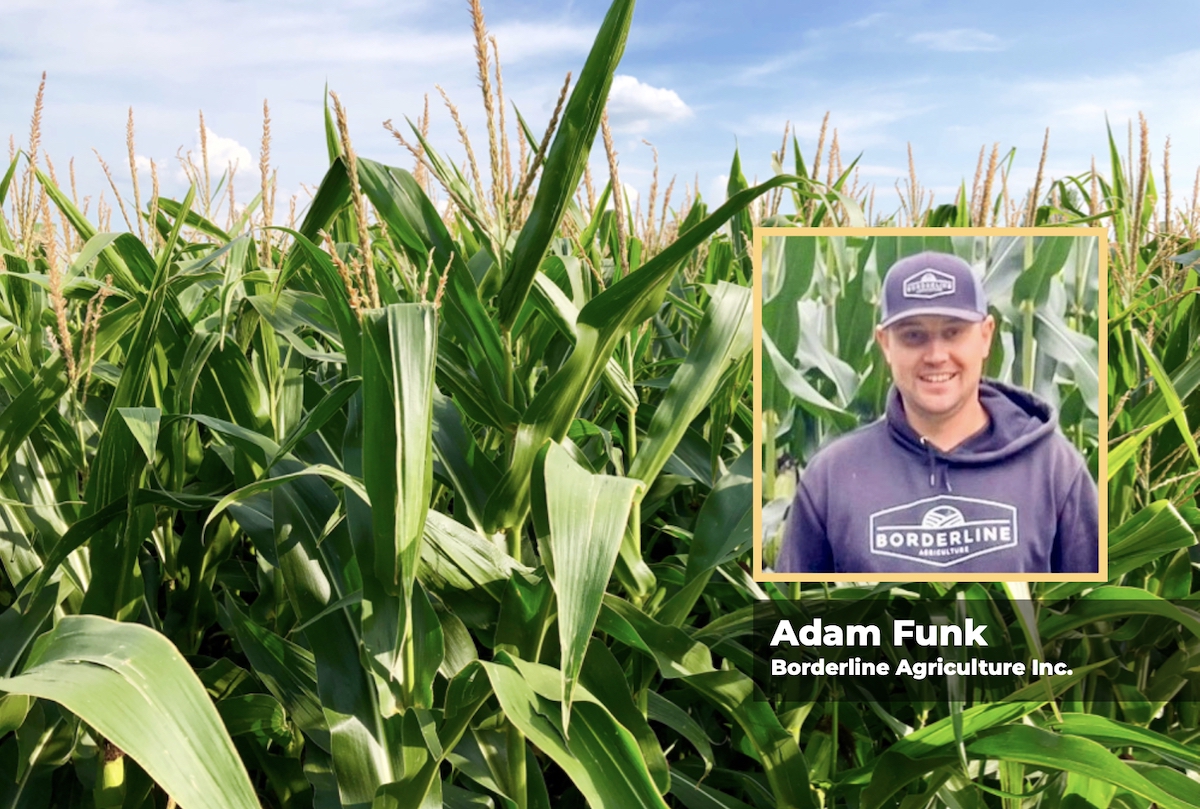
Agronomists share tips for evaluating new crop products and tech: Pt. 3
With new products, new production practices and new technology converging on the agriculture industry at a frenetic pace in recent…
The rest of Italy consists largely of hills and mountains, but it is here that Italy’s famous wines and olive oil are grown, plus tomatoes and other vegetables and fruit.
Liguria itself is a narrow strip of mostly sparse and stony pine, oak and chestnuts hills that fall steeply into the sea. Every small bay hosts a coastal resort town, among them such better-known destinations as San Remo or Savona. Except for these towns, it’s wild country, not prime farming by any description, except for the small plain behind Albenga where greenhouses cover the landscape with a flourishing floriculture.
The western section of Liguria is home to a much smaller plain centred around Andora on what is called the Italian Riviera, and it is here that, according to locals, the basil for the world’s best pesto is grown. Beyond that plain, however, the remaining farms hug the steep hillsides, terraced and planted with mostly olive groves and a few vineyards.
This is the home of I Cianelli, a farm that takes its name from the dialect word for the extra-wide terraces unique to that area.

Stefano and Rosanna came to farming late. In 2007, in their early 40s, they left their comfortable jobs as auto mechanic and gym instructor and took over Stefano’s father’s farm. Had they not, I Cianelli might have given up, as one-third of Italy’s farms did between the years 2000 and 2010.
Coming to the farm was a risk — Rosanna and Stefano knew the land base wasn’t enough to pay their bills. But, they thought, “Let’s try it.” The government was offering incentives for agritourism — holidays on the farm. With that help they built a new house with room for 12 guests, offering breakfast and a full dinner of traditional Ligurian food cooked to perfection by Rosanna.
The small vineyard produces 1,000 bottles of wine annually of the local Pigato grape. Most of the farm is in olive groves, about 1,000 trees in groups of 100 to 200 trees, and 200 fruit trees including cherry, peach, apricot, pear and apples.
Stefano works full time on the farm where he is responsible for all the cropping. Rosanna’s job is to look after the guests, especially the kitchen, although during the quiet winter season she continues to work as a gym instructor in Andora.
Ligurian olive oil, produced from the Taggiasche olive, has a good reputation. The oil is lighter, with a milder flavour than that of southern Italy, and is wonderful with fish dishes. 2014 was a poor year for olive production. The last two years were too wet, unusual for this normally arid region. It rained during flowering, reducing pollination.
Recently an Asian pest has been troubling them too — the olive fly, which lays eggs in unripe olive fruits. Stefano opens a shrivelled black olive exposing a tiny white larva. “In this last year the olive harvest was terrible,” he says. “I only got 170 litres of oil.”
At 10 euros (C$14) for a one-litre bottle, that’s not much return on a year’s work, he knows. Normally the total would be around 1,000 bottles.
Stefano prefers organic pest control, even though he’s not a certified organic farmer. Depending on the weather, he’ll treat the olive trees with up to two applications of insecticide. He’s researching an organic solution for the olive fly with kaolin, a white clay, but it washes off with rain, and is quite expensive. Another option is the Dow AgroSciences product “Spintor Fly” which is mixed with water in bottles and hung in the trees as traps.
Small farms survive by offering a premium product to customers with whom they have a close relationship. Stefano is particular about the processing of his crops. The friend who processes his olives owns an old stone press but also a modern one that can manage the temperature very precisely. Olives should be pressed at a low temperature for best quality — preferably 17 C but not more than 30 C. They need to be pressed within 24 hours of picking, faster is better, to reduce the chance of fruit overheating or fermenting. Particular care must be taken with hygiene to produce a premium oil without a trace of rancidity, which can happen if equipment is not kept absolutely clean.
I Cianelli’s grapes are pressed in the wine cellar of a friend in Imperia, a nearby town. It’s these relationships, knowing those who will do the best job, that are so important to Stefano.
The olives and grapes thrive in the arid climate, but the fruit trees are irrigated. I Cianelli’s small well cannot keep up with the water necessary so Stefano supplements it with a rainwater pool. The house is supplied with council water from an aqueduct.
It’s the agritourism which pays over half the bills. Passionate about their business, Rosanna and Stefano have built up a name. I Cianelli is open year round, and summers are always totally booked out. Breakfast, a wonderful affair with Rosanna’s whole wheat bread, jam from the fruit trees, local cheeses and a Moka pot of thick black Italian coffee with hot milk, is served on the patio with its lovely view over Andora’s hills and the Mediterranean Sea beyond. Dinner is taken at the large oak table inside.
Only environmentally friendly materials were utilized in the construction of the house. The plaster is of natural hydraulic lime with no trace of cement. Woodwork and furnishings are of solid oak. Rosanna takes care to source and use local organically grown products whenever possible, such as the wheat for her whole wheat bread and foccacia, and the cheeses for breakfast. The majority of vegetables come from her parents’ garden.
The European Union’s support for agritourism is part of a strategy to halt the exodus of youth from the farms. Unemployment for youth under 25 in the Andora region, which is heavily dependent on tourism, was at an alarming 47 per cent in October 2014 and the national average wasn’t all that much better. The EU programs are geared to younger farmers in poorer rural regions, like Liguria.
Through agritourism, value is added to farm produce by serving it as meals or processing into oil, wine or jams sold to the guests.
Even so, to qualify for the agritourism label, farmers must spend more hours working on the farm than on tourism. Food must also originate primarily from on-farm produce or local sources, and traditional culture and food must be promoted.
The concept took hold quickly among Italians, for whom foods cooked with local products have long been highly valued. Food for Italians is not just about eating — it is about relationships, both to the people sharing the food and to those growing and marketing it.
These relationships are on display at the local market where housewives seek only the best-quality products. It’s also on display when guests eat at I Cianelli. Dinner is not to be quickly eaten at Rosanna’s. It’s a leisurely affair prepared with love, beginning with an antipasto, followed by the primo and second courses enhanced by a glass of I Cianelli’s wine. The meal ends with dessert, maybe Rosanna’s olive cake dipped in Limoncello. By now everyone is too full and it’s too late to drive the curves down to Andora’s nightlife!
Now, Rosanna and Stefano are evolving toward a vegetarian menu, although it will still incorporate eggs and cheese, with fish and meat reserved for specific events. This change, along with I Cianelli’s concern for the environment and the warm hospitality of its owners, provides the agritourisimo with a strong advantage. Rosanna offers personal fitness lessons and Stefano mountain bike tours. Both are eager to recommend hiking and biking trails off the beaten path, plus day trips to one of the borgos (villages) tucked into the hills, such as the medieval town of Zuccarello, or Castelvecchio di Rocca Barbena crowning the top of the mountain.
Their 20-year-old son Simone is home for a year. He studied accounting but has plans to become a chef, the kitchen being his passion. Stefano and Rosanna hope he will take over the farm. There is room to grow — land is available next door. Stefano would expand the vineyard and add a processing and bottling plant. He talks of greenhouses for vegetables. But he’s 50 now, and unless he knows Simone will come back to the farm, he’s not willing to work harder than he already does.
The steep hills leave little room for machinery. Most of the work is hand labour — weeds are controlled with the string trimmer or rototiller. The olive trees and grapes are pruned by hand. Not all of the 1,000 trees get pruned every year. Stefano is fit — he’s an avid mountain biker. But it’s still hard work.
Their marketing could be improved, Stefano admits. “Ligurians don’t market themselves well.” He says they are not as aggressive as the people in the Tuscany, who advertise in the newspapers and on the Internet. Rosanna says Ligurians are more reserved. She thinks it comes from their past, when Ligurians were continually attacked by pirates and armies. They learned to retreat, to say nothing, although they are very friendly when spoken to.
“It was a big change for me,” Stefano says of becoming a farmer. For 25 years he was used to waking early and going to work. One big challenge for him was the winter, especially the rainy days when he couldn’t go outside. Now he’s adjusted. “The lifestyle is far more relaxed and rewarding,” he says. The income is not as secure or as high, “but it is worth it.” Rosanna loves the farm and particularly enjoys the agritourisimo. “The guests become friends,” she says. “They send emails: ‘Ciao, Rosanna,’ they write in English, French, Spanish and Italian.”
Stefano and Rosanna are aware that their business depends heavily on tourism. Subsidies don’t contribute much to their income. Italy’s volatile economic and political situation worries them, but they hope to increasingly draw foreign tourists too. “I hope the economic crisis will be better the next year,” says Stefano, noting that next October they will build a swimming pool and add two more rooms. “I want to survive.”
This article was originally published as “Ciao bellissima!” in the February 17, 2015 issue of Country Guide


